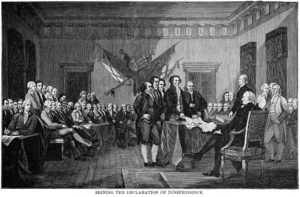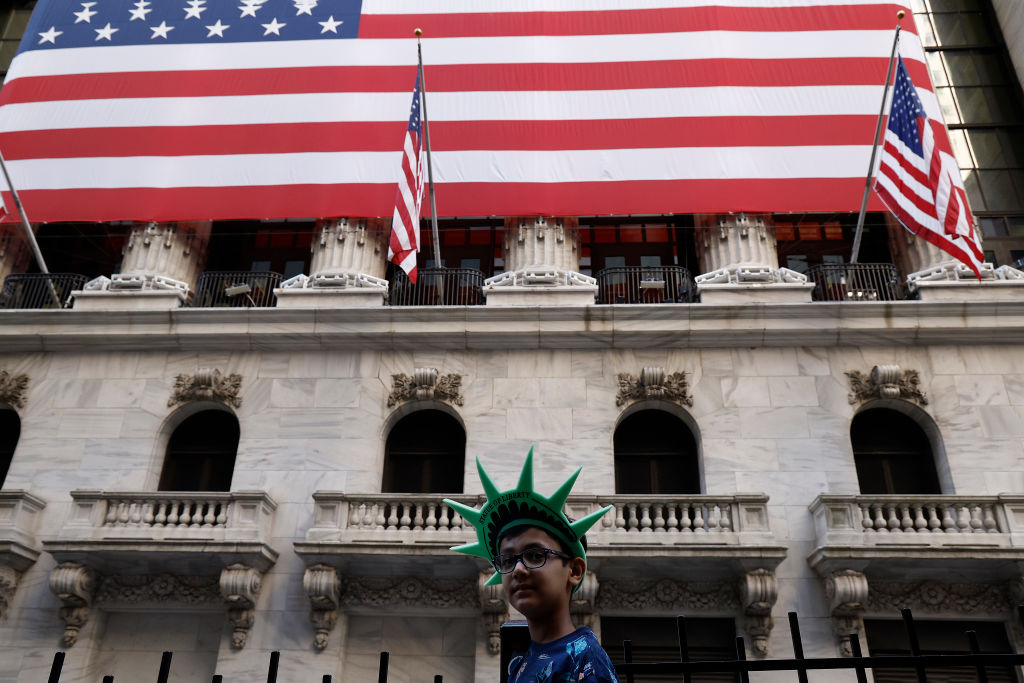The 4th of July has a special meaning, this year, as a time to reflect on the historical significance of that day when brave patriots put their names on a document that would change the world. The Declaration of Independence was not just an announcement of a group of people wishing to sever a master-serf relationship with a larger, more powerful nation. It was not just a notice to one country at a single point in time but a pronouncement that set in motion a sovereign government model with human ideals the envy of countries worldwide. But today, in the place that gave birth to those ideals, there are forces bent on destroying the underpinning truths on which the US was founded. We’re seeing the consequences of activists taking to the streets to rail against a system they scream is unjust but about which they know little or, in many cases, nothing. The irony, of course, is rioting thugs now take exception to the system that allows a platform for their discontent.
Unlike the indulgent atmosphere facing protesters today, the environment in which the representatives from the 13 original colonies found themselves was anything but temperate or forgiving toward crafting a compelling list of grievances putting the British on notice. Standing tall as a dedicated and aligned group of leaders demanded certain courage – their lives were on the line. Those called patriots in the colonies, the British labeled traitors for which the reward was hanging. King George III sent the senior officer brothers – Admiral of the Fleet Richard Howe, and General William Howe in charge of the British Army since 1775 – to put down the rebellion. General Howe had arrived off Sandy Hook, New Jersey, on June 29 with 48 British ships and offloaded 10,000 red-coated troops. While Admiral Howe, less than two weeks later, sailed into the harbor at Staten Island with 82 Royal Navy vessels. By August 12, 32,000 British and hired German Hessian soldiers and 10,000 Royal Navy sailors confronted the struggling Continental Army.
As the British were moving troops into the colonies, the Continental Congress debated the wording of the Declaration of Independence. On June 7, 1776, Richard Henry Lee, a representative from the Commonwealth of Virginia, presented a draft of a resolution of independence and moved for it to be accepted. There was little fuzz on the resolution. It stated clearly, “That these United Colonies are, and of right ou[gh]t to be, free and independent States, that they are absolved from all allegiance to the British Crown …” While the British and colonists engaged in pitched battles, some of the colonies were reluctant to agree to severing ties with King George. The final vote was delayed until July 1, and in the intervening period George Washington, commanding the Continental Militia, was impatient to get the Declaration to his troops. He needed to show the colonists who volunteered to take up arms against the British their cause was legitimate. Thomas Jefferson, the best writer among the colonial representatives, submitted his first draft on June 28, 1776. A section repudiating the slave trade drew criticism from the southern colonists and was removed. Still, the unambiguous phrase, “We hold these truths to be self-evident, that all men are created equal, that they are endowed by their Creator with certain unalienable Rights, that among these are Life, Liberty, and the pursuit of Happiness,” remained. Once the gravity of these words were enshrined for posterity, there could be no legitimate case for slavery. It was a compromise, to be sure, but one preserving fundamental truths and an enduring ideal.

(Photo by: Universal History Archive/Universal Images Group via Getty Images)
On July 2, the final draft of the Declaration was voted on and passed unanimously among those present. The representatives from New York abstained, unsure of the views of those they represented. Later on July 9, New York agreed publicly to break with Britain. John Hancock, president of the Continental Congress, and Charles Thomson, secretary, signed the Declaration on July 4 (the only signatures on that day), and the document was immediately copied, sent to be printed, and disseminated throughout the 13 colonies. Not until the first week in August 1776 were all 56 signatures affixed to the document.
“The mood in the room was far from jubilant. All were aware of the magnitude of what they were undertaking – an act of high treason against the British Crown that could cost each man his life,” wrote National Geographic in its account of the events.
Interestingly, the Revolutionary War was well underway before, during, and after drafting the Declaration of Independence. Furthermore, not until October 31, 1776, did King George III acknowledge to Parliament that he had received the document. So, as television screens amplify the picture of upheaval in our streets today, July 4 offers the opportunity to celebrate the courageous Founding Fathers. They established the ideal of the freedom all Americans enjoy. July 4, 1776, was a seminal event that reverberated around the world.
The views expressed are those of the author and not of any other affiliation.




